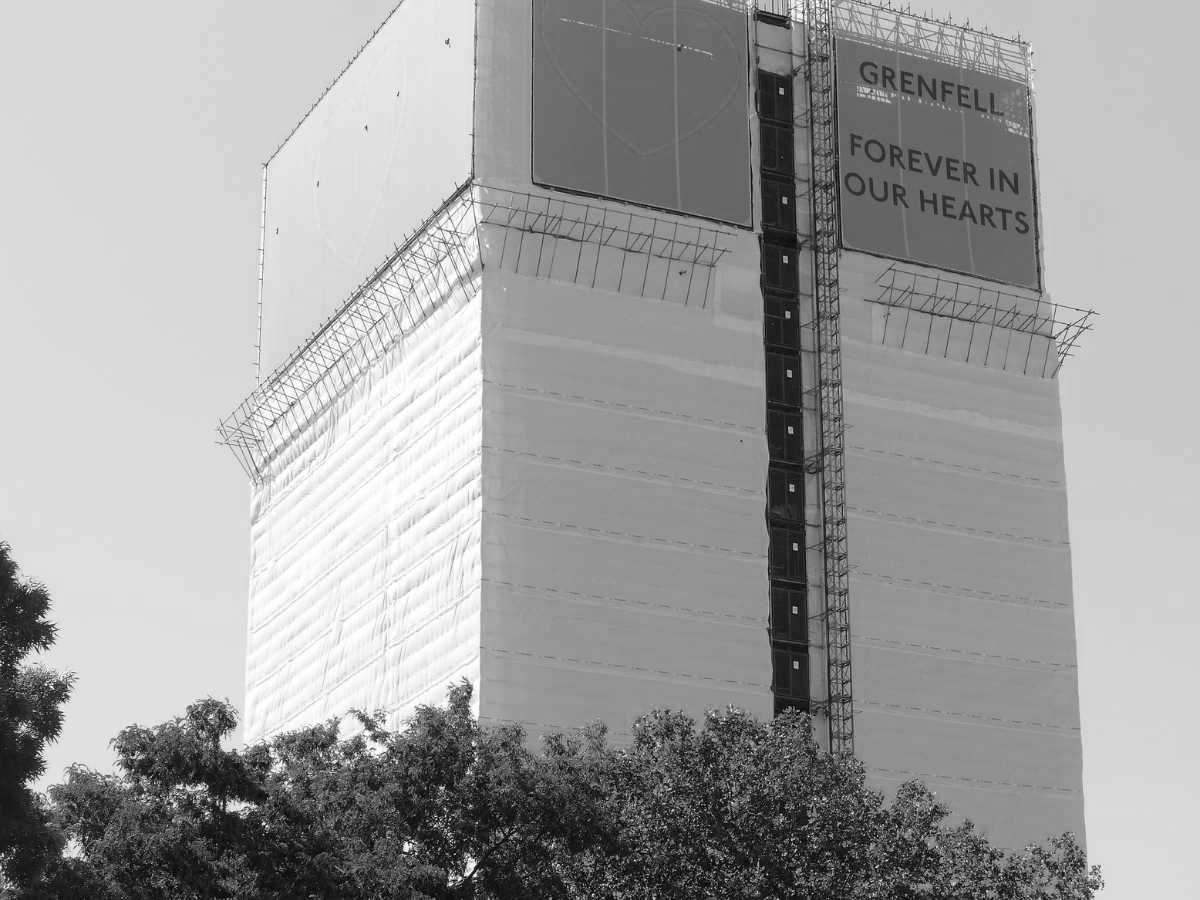The Grenfell Tower fire was a catastrophic blaze that occurred on 14 June, 2017 in West London. It has left a lasting impact on survivors, the bereaved, and the wider community. This disaster, which killed 72 people and displaced hundreds, continues to cast a long shadow over the lives of those affected.
However, this catastrophic event was not just an accident but the culmination of years of institutionalised neglect, racism, classism, and discrimination against the predominantly low-income, Black, brown, and disabled residents of the tower.
Despite the passage of time, many people are still grappling with the emotional, physical, and financial repercussions of the fire, and there is a growing consensus that the government has not done enough to address their needs or prevent similar disasters in the future. Moreover, the racism and classism that caused the fire still pervades authorities’ dealings with survivors today.
Grenfell: systemic racism and classism
The construction and subsequent refurbishment of Grenfell Tower highlight a blatant disregard for the safety and well-being of its residents.
The building was originally constructed in the 1970s as part of a social housing project. By the time of the fire, it had become home to a diverse community, many of whom were refugees or from ethnic minority backgrounds. This demographic, historically marginalised, already faced systemic discrimination in many aspects of their lives, including housing.
In 2014-2016, Grenfell Tower underwent a refurbishment that included the installation of highly flammable cladding to improve the building’s aesthetic appeal. The council did this driven by a desire to make the tower blend in with the surrounding affluent area of Kensington and Chelsea. In other words, to try and hide the poverty.
Lives less valuable
Companies chose the cheaper, more dangerous materials for the cladding – despite safer alternatives being available. It reflects an underlying classism. These corporations deemed the residents’ lives less valuable, and compromised their safety to save costs and appease wealthier neighbours.
Moreover, council management ignored numerous warnings and complaints from residents about fire safety. The Grenfell Action Group had repeatedly raised concerns about fire hazards, but the council ignored them. Its disregard is indicative of a broader pattern of institutional racism and classism, where governments and public bodies systematically ignore the voices of marginalised communities.
In the aftermath, the response from authorities was slow and inadequate, further exposing the deep-rooted inequalities. The lack of urgency in addressing the survivors’ needs and the prolonged process of bringing justice highlighted the systemic nature of the biases at play.
Persistent trauma and displacement
Survivors and bereaved families are still dealing with profound trauma. The psychological scars of losing loved ones, homes, and personal belongings are compounded by feelings of injustice and neglect. Many survivors report ongoing issues with anxiety, depression, and post-traumatic stress disorder (PTSD). Mental health support has been insufficient and inconsistent, with some survivors struggling to access the care they need.
Moreover, the displacement of residents has been a protracted and painful process. Over seven years later, some former Grenfell residents are still without permanent housing. Ergo, the government’s has still not fulfilled its initial promise to rehouse all survivors within three weeks.
The temporary accommodation it has provided has often been inadequate. And the government and council’s failure to provide suitable and stable housing has exacerbated the distress and uncertainty survivors face.
Shameful government response
The government’s response to the Grenfell Tower fire has been dire, and littered with racism and classism. It has failed on key promises it made in the aftermath of the fire. For example, the government’s commitment to replace unsafe cladding on similar high-rise buildings has progressed at a glacial pace.
As of early 2024, thousands of buildings across the UK still have dangerous cladding, putting residents at risk and perpetuating a state of fear and anxiety among those living in these properties.
The Grenfell Tower Inquiry, set up to investigate the causes of the fire and the actions of those responsible, has revealed shocking levels of negligence and incompetence. However, many survivors and campaigners feel that the government has not served justice.
There have been no criminal prosecutions, and any accountability has not materialised. This lack of justice contributes to authorities’ abandonment and betrayal of the affected community.
Systemic issues that must change
The Grenfell Tower fire has highlighted systemic issues within social housing, building regulations, and fire safety standards in the UK. The disaster exposed significant flaws in the regulatory framework, including the use of flammable materials, inadequate fire safety measures, and poor maintenance of social housing. Despite these revelations, meaningful reform has been sluggish.
Campaigners argue that the government has not taken sufficient action to address these systemic failures. The introduction of the Building Safety Act 2022 was a step forward, but many believe it does not go far enough to ensure the safety of residents in high-rise buildings. There is a pressing need for more robust regulations, better enforcement, and greater accountability to prevent another disaster like Grenfell.
Grenfell: still steeped in racism and classism
The Grenfell Tower fire remains a stark reminder of the devastating consequences of neglect and complacency. The survivors, bereaved families, and affected communities continue to suffer, both from the immediate impacts of the fire and from the government’s inadequate response.
Moreover, it is a stark reminder that racism and classism are not just social issues but deadly forces that can lead to catastrophic outcomes.
The legacy of Grenfell must drive urgent and sustained action to address these deep-seated issues and safeguard the lives of residents across the UK. It must also finally expose the institutionalised racism and classism that exists in government, public bodies, and wider society:
Featured image via Garry Knight




